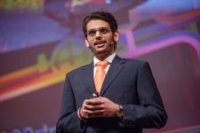From Donald Trump's Fake News Awards to Jeremy Corbyn calling the NHS' claims of record funding a ‘fake news agenda. 'The term has recently evolved from a niche reference to become a crucial part of our cultural zeitgeist. Fake news has become an epidemic reaching far enough to depreciate financial markets and even put social media giant Facebook in to the hot seat. It's time that we focus on how best to tackle the problem.
While fake news dates back as far as the 16th Century, the recent adoption of technology has seen the issue proliferate on a scale never seen before. To truly eradicate the problem at its roots, we need to turn to the very technology that helped create it.
Artificial Intelligence has allowed us to replicate the work done by individual fact checkers on a much larger scale, by combining natural language processing and machine learning algorithms. The algorithm learns from patterns in order to detect indicators of tone and sentiments in articles over time, allowing it to determine the validity of the content. Rather than using hundreds of fact checkers to search the internet for false story, this algorithm will identify fake news in a matter of seconds. Platforms such as Logically and Facebook have utilised AI in varying degrees to tackle the problem.
However, as with every new technology, we are facing the challenge of daily updates that we need to react to. Earlier this year, for example, we saw the rise of Deepfakes online. Deepfakes are videos which have been manipulated to show someone else and represents an advancement in fake news technology. While the quality of these fakes are dependent on the hours of footage the algorithm has of an individual, then can improve as the quantity of footage increases. This makes it increasingly difficult to tackle the issue, and we are still working on a detection technology.
We are constantly learning and adapting in the world that is fake news, and it is important that we do not become complacent in our dealings with it. Many believe that only those in positions of fame or power can be impacted by fake news, but it has a much larger reach, and everyone should be vigilant as to what they are reading. Businesses especially must be careful when they are using data or information that they have found online. It could really discredit a business if they inadvertently distribute false information, so businesses need to ensure that the information that they circulate is accurate and from a reliable source. Checking sources and doing some additional research will go a long way in stopping the spread of fake news in its track.
About the Author- Lyric Jain
Lyric Jain is the 21-year-old serial entrepreneur behind Logically- the UK's first intelligent news feed that uses complex analytics to identify fake news, separate fact from falsehoods, and illustrate discrepancies in the sentiment of journalism from across the political spectrum. Currently an undergraduate at Cambridge University, Lyric designed the algorithm behind Logically whilst studying for a term at MIT. The algorithm combines AI and Human Intelligence and uses complex analytics to determine credibility and recognise language indicative of bias, subsequently charting the tone of coverage on a person or event.






